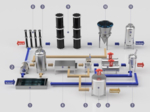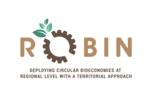-
Festo’s high-tech bioreactor - 10/11/2022
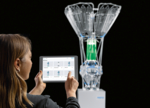
In future, algae could be used to produce practically everything that still requires petroleum, including plastics, fuels, medicines and food. Algae are also climate savers par excellence, because they bind ten times more CO2 than terrestrial plants. Festo, a company based in Esslingen, Germany, has developed a high-tech bioreactor that can be used to automatically cultivate the small green biofactories - and that do so a hundred times more…
https://www.biooekonomie-bw.de/en/articles/news/valuable-materials-all-kinds-produced-automatically-living-cells
-
-
-
-
-
-
-
-
Start-up 'Innovation Matters' - 19/12/2022
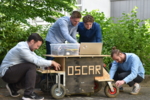
Saffron is one of the most expensive spices in the world, because picking it involves a complex manual process. This treasure therefore comes to us mostly from countries such as Iran with poor working conditions and low wages. A start-up company called Innovation Matters from Baden-Württemberg is now developing a robot-assisted, automated process that will make saffron cultivation attractive in Germany as well as ecological and fair.
https://www.biooekonomie-bw.de/en/articles/news/saffron-cultivation-germany-sustainable-support-robots
-
Vaccination for plants - 23/01/2023
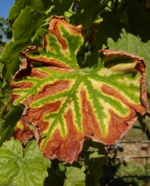
Climate change creates stress. This provides an opportunity for pests to exploit plant weaknesses and reproduce. For the infested plant, this can be catastrophic and often fatal. But instead of continuing to protect harvest yields with toxic substances as before, the transnational DialogProTec project is now taking a completely new approach: researchers want to intervene in the communication between plants and pests to keep them healthy.
https://www.biooekonomie-bw.de/en/articles/news/dialogue-instead-chemical-maze-new-strategy-sustainable-crop-protection
-
Valorization of biological materials - 12/01/2023
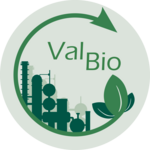
Reducing carbon dioxide emissions and the capture and utilization of CO2 are important steps towards achieving a climate-neutral and sustainable economy. Accordingly, as part of the ValBio-Urban research project, an interdisciplinary team from the University of Stuttgart is developing bioeconomic approaches to solutions that will be implemented with companies from Baden-Württemberg.
https://www.biooekonomie-bw.de/en/articles/news/valbio-urban-brings-bioeconomy-research-users
-
-
-
-
-
Synergistic effects with microalgae and purple bacteria - 03/02/2023
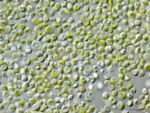
A biorefinery that uses industrial wastewater and residual material streams is being built in Rheinfelden (Baden). It will have two interlinking bioreactors and will synthesize biohydrogen as well as organic basic materials such as carotenoids and proteins. SmartBioH2-BW is a pilot project run by the Urban and Industrial Biorefineries initiative and funded by the Baden-Württemberg Ministry of the Environment, Climate Protection and Energy Sector.
https://www.biooekonomie-bw.de/en/articles/news/working-towards-hydrogen-economy-wastewater-biorefinery-smartbioh2-bw-project
-
Press release - 08/12/2022
The German Research Foundation (DFG) has awarded the 2023 Gottfried Wilhelm Leibniz Prize to Prof. Achim Menges, head of the Institute for Computational Design and Construction at the University of Stuttgart. The award, which is endowed with EUR 2.5 million, is considered by many the most important research prize in Germany.
https://www.biooekonomie-bw.de/en/articles/pm/leibniz-preis-fuer-prof-achim-menges
-
-
Press release - 15/12/2022
The launch of the global Nature Positive Universities initiative was announced at the UN Biodiversity Conference (COP 15), held in Montreal, Canada, in December 2022. The University of Konstanz is one of more than one hundred universities from all five continents joining the initiative. The common goal is to address the university's own impact on nature and to identify and implement effective measures to halt and reverse the loss of…
https://www.biooekonomie-bw.de/en/articles/pm/verantwortung-uebernehmen-zum-schutz-der-biodiversitaet
-
-
Think Tank FYI: Agriculture 5.0 - 16/02/2023
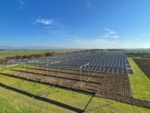
Climate protection, agriculture and biodiversity are closely intertwined. Agriculture 5.0 provides positive guidance, as the Offenburg University of Applied Sciences has demonstrated: agrophotovoltaics (or agrivoltaics), which is currently in vogue in Germany, can be used to generate solar power on high-yield fields. Biomass strips and biochar remove CO2 from the atmosphere. All this improves soil quality and promotes biodiversity.
https://www.biooekonomie-bw.de/en/articles/news/agriculture-50-fighting-climate-crisis-agrophotovoltaics-and-biochar
-
-
-
-
Website address: https://www.biooekonomie-bw.de/en/search

